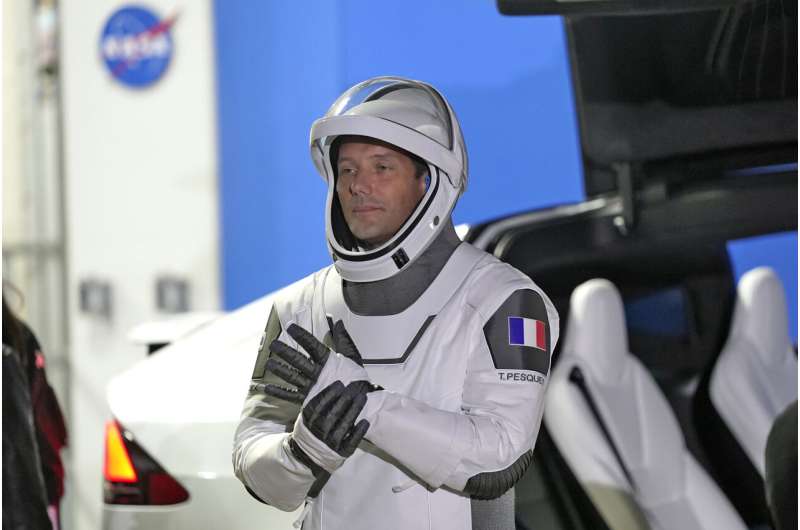Entire regions of Earth in flames. Storms trailing destruction in their wake. And the haunting fragility of humanity's only home floating like a blue—but also tarnished—pearl in the vastness of space.
Through the portholes of the International Space Station, French astronaut Thomas Pesquet has an arresting view of global warming's repercussions. He used a video call from space to sound the alarm Thursday, as negotiators, government officials and activists continued meeting at a U.N. climate conference in Glasgow, Scotland.
"We see the pollution of rivers, atmospheric pollution, things like that. What really shocked me on this mission were extreme weather or climate phenomena," Pesquet told French President Emmauel Macron during the call.
"We saw entire regions burning from the space station, in Canada, in California," he said. "We saw all of California covered by a cloud of smoke and flames with the naked eye from 400 kilometers (250 miles) up."
From space, "the fragility of Earth is a shock," Pesquet continued. "It's a sensory experience to see just how isolated we are as an oasis, with limited resources."
This is Pesquet's second mission to the space station. He also spent 197 days in orbit in 2016-2017. The destructive effects of human activity have become increasingly visible, he said.
"Year after year, we also know we are beating records for fires, for storms, for floods. And that is very, very visible. I very clearly saw the difference compared to my mission four or five years ago," the astronaut said.
Macron said the goal for climate negotiators in Scotland must be to speed up humanity's response.
"There is still a huge job ahead of us, and I think we are all aware of that," the French leader said.
© 2021 The Associated Press. All rights reserved. This material may not be published, broadcast, rewritten or redistributed without permission.



